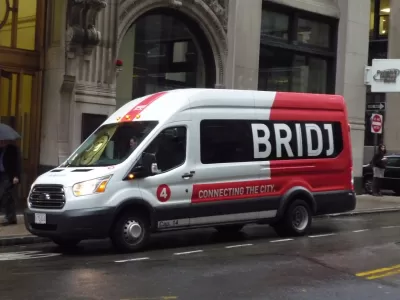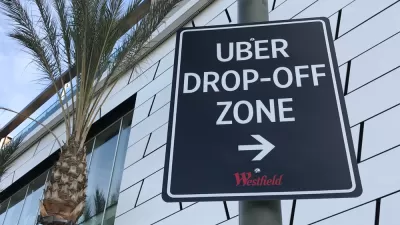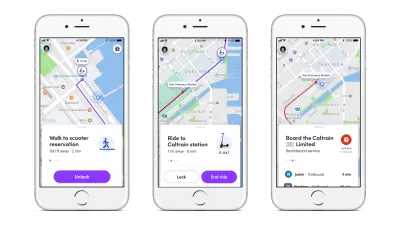Bridj's bet that it could, well, bridge ride-hailing and public transit didn't pay off. Lacking new investment, the company is shutting down.

Inspired by the success of Uber and Lyft, Bridj attempted to disrupt public transit with a van-based model. Linda Poon writes, "Bridj works by allowing users to request a ride in one of its 14-seat vans whose routes are calculated by an algorithm so that riders are picked up and dropped off in the most efficient manner. Each ride costs passengers between $1.50 and $7, depending on what’s agreed upon with the city."
The startup saw some early success by partnering with Ford. "It shortened trips for thousands of Boston commuters, it eventually extended limited service to Washington, D.C., and Austin, Texas, and it got Ford Motors Co. and the Kansas City Area Transit Authority to pilot a year-long experiment in Missouri."
Now, as the company shuts its doors, the question is why couldn't Bridj catch on. "Many didn't use the app beyond the first 10 free rides, despite the fact that the service attracted a largely younger and wealthier crowd—which raised the question of whether Bridj was accessible for the low-income population." Marketing was also lacking, and the company had trouble identifying where shuttles would be needed most.
FULL STORY: Bridj Collapses After Just 3 Years

Planetizen Federal Action Tracker
A weekly monitor of how Trump’s orders and actions are impacting planners and planning in America.

Congressman Proposes Bill to Rename DC Metro “Trump Train”
The Make Autorail Great Again Act would withhold federal funding to the system until the Washington Metropolitan Area Transit Authority (WMATA), rebrands as the Washington Metropolitan Authority for Greater Access (WMAGA).

The Simple Legislative Tool Transforming Vacant Downtowns
In California, Michigan and Georgia, an easy win is bringing dollars — and delight — back to city centers.

The States Losing Rural Delivery Rooms at an Alarming Pace
In some states, as few as 9% of rural hospitals still deliver babies. As a result, rising pre-term births, no adequate pre-term care and "harrowing" close calls are a growing reality.

The Small South Asian Republic Going all in on EVs
Thanks to one simple policy change less than five years ago, 65% of new cars in this Himalayan country are now electric.

DC Backpedals on Bike Lane Protection, Swaps Barriers for Paint
Citing aesthetic concerns, the city is removing the concrete barriers and flexposts that once separated Arizona Avenue cyclists from motor vehicles.
Urban Design for Planners 1: Software Tools
This six-course series explores essential urban design concepts using open source software and equips planners with the tools they need to participate fully in the urban design process.
Planning for Universal Design
Learn the tools for implementing Universal Design in planning regulations.
Smith Gee Studio
City of Charlotte
City of Camden Redevelopment Agency
City of Astoria
Transportation Research & Education Center (TREC) at Portland State University
US High Speed Rail Association
City of Camden Redevelopment Agency
Municipality of Princeton (NJ)





























